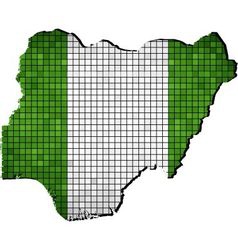
By Sakiru Yisau
As of 1960, the average population of Nigeria was around 45 million people and there was a projection of average growth of 2.5%. By this, we currently have a country of around 200 million people and by 2040, this population will amount to around 350 million people. 350 million people without opportunity, aspiration, and dignity will amount to bigger trouble – chaos and adversity.
The major problem of Nigeria started from the point of independence. In as much as it was a reasonable thing to demand independence from the British exploiters, the actors were majorly tribal leaders who have done something good in their respective section of the new country but have the desire to lead a bigger country. And in the process, they were carried away from discussing our differences at the negotiation table. All they want is a big country they can rule.
This quest for power to rule a big country led to the first coup in 1966, just 6 years after independence, and a counter-coup 6 months after. Series of events led to the Biafra war in 1967 which was fought until early 1970. The political affairs of Nigeria for the first 10 years were riddled with betrayal and pain, and it was not by mistake that the years after the Biafra war witness several military rules and a disruptive attempt to go back to the democratic system. After a long agitation to embrace once again the democratic style of government and the sudden demise of the then Head of state, General Sani Abacha, the country returned to democracy in 1999.
Unbeknown to the majority of the populace, the country was given a constitution that instead of solving the problem of the first republic, added more problems by creating a situation where power belongs wholly to whoever is the president. I believe this style of democracy is not fit for Nigeria and Africa as a whole because of the kind of people we are. Africa is a home of over 3000 ethnic groups and over 2000 languages and Nigeria, with around 10% of such numbers, should do better in terms of governance and political settings.
Nigeria is indeed a mirage. An average person born pre or post-independent always have something good to say about their beloved country. By average man, I mean the working class who work in government or private offices, the teachers, the farmer and traders in various market. The point I am making is that unlike now, they do not have to be rich or be in a position of power to enjoy the good things the country has for them. This experience of theirs seems to depreciate with time and they mostly find solace in their present situation by telling their children how good things were in the past.
Consequently, the children of these post and pre-independence are adults of the 80s and 90s and sadly, they also have something to tell their children too about how good things were, during their time. Those children of the 80s and 90s are parents in this present Nigeria and of course, they too have something good to say to their children about their country. The same way I will talk to my unborn children about how 5 Naira was valuable when I was young is the same way those oldies will tell the 80s and 90s guys that they rarely look for work during their time because of the favourable demand and supply workforce.
Mirage disappears as one gets closer and this can be linked to the current situation in the country. The older the country, the more she plunges into a hole of self-destruction. So, the Nigeria of 2040 depends on many factors and if the status quo is to be used to measure the future of this country by 2040, then what will remain of Nigeria will be a shadow of what we see now – a country with only name attachment. Also, if other factors that will take into consideration our differences are considered, we may find a way to remedy the current chaotic situation and have units of Nigeria or united Nigeria.
Present Nigeria is a quarter past the restructuring period, that is why there are social vices here and there. By the time we move half a circle from now, there will be minor-major civil disobedience – a survival period. Nothing good will come out of this country, Nigeria, as it is and I don’t think those in power will have a rethink to let it go until they destroy it. We are all in it together – those who want restructuring might get it; those with balkanization agenda might be considered, but those who want this present Nigeria don’t stand a chance with time. The more the delay, the more the pain, but the less the gain. We should decide now or we prepare for the worse. This present Nigeria can never get better without a systemic approach to solving the country’s core problem.
(c) Sakiru Yisau 2021




Comments (1)
ARUKWE CHIEDOZIE ANOINTINGsays:
January 30, 2022 at 8:00 amWell articulated